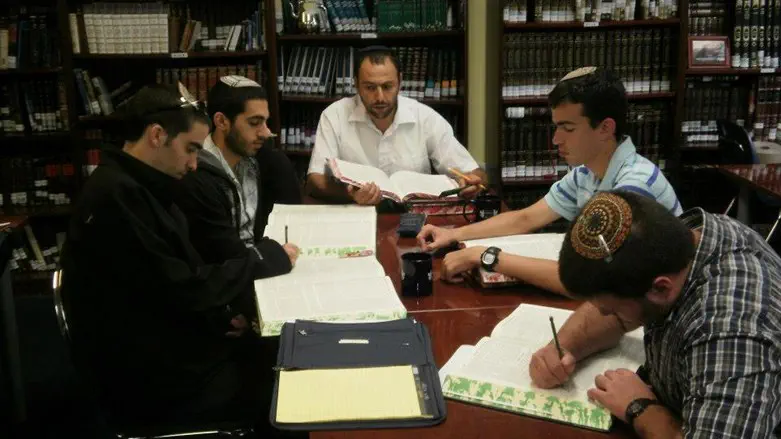
Rabbi Shimon says, ‘the punishment for a liar is that even when he speaks the truth, no one believes him. So we find with the children of Jacob, who deceived their father. In the beginning he believed them, as it says, "They took Joseph’s coat, slaughtered a goat,” and then it says, “He recognized it, and said: This is my son’s coat!” But afterward, even when they spoke the truth to him, he did not believe them, as it says, ([“His heart became numb, for he did not believe them.”]) “They told him, and said: Joseph is still alive…[but] he did not believe them.” (Avot DeRabi Natan, 30)
The impact of a pattern of lying runs deeper than the concealment of particular sets of facts. This behavior can undermine people’s perception of reality so that it becomes hard to tell the difference between truth and lies. This is what happened to brothers. When they were finally ready to undo their lie and tell Yaakov Avinu the truth, he was unable to believe them.
Da’at Zekenim, based on Rashi, explains what helped Yaakov overcome his disbelief. It was the coded signal that Yosef sent him in the form of the wagons (agalot). These were a reference to the concept of eglah arufah, which Yosef had studied with his father before leaving. Seeing this signal restored Yaakov’s ruach hakodesh, which had been missing since Yosef’s departure, returned.
Daat Zekenim explains this signal further. When Yaakov sent Yosef to seek out his brothers, who ultimately sold him to slavery, he insisted on accompanying Yosef part of the way. Yaakov explained that leviah, accompanying the traveler, is a critical Torah concept. The connection to eglah arufah is that leviah features prominently in that context. Part of the pronouncement that the city elders make in the eglah arufah story is “that our hands have not spilled it (the blood of the dead traveler).” (Devarim 21:7) The Talmud (Sotah 45b) explains that there was never a suspicion that the city elders actually killed the person, rather they are exclaiming that he never became known to them and was subsequently left without food or an escort from the city.
Why did this signal help Yaakov overcome the confusion created by the brothers’ lie? Perhaps when Yosef disappeared Yaakov lost not only a son but also his hopes for the spiritual future of his family. Yosef was the spiritual force that was meant to counteract Eisav. Without this contribution, Yaakov could not understand how Klal Yisrael could continue to develop.
The impact of a pattern of lying runs deeper than the concealment of particular sets of facts. This behavior can undermine people’s perception of reality so that it becomes hard to tell the difference between truth and lies. This is what happened to brothers. When they were finally ready to undo their lie and tell Yaakov Avinu the truth, he was unable to believe them.
Da’at Zekenim, based on Rashi, explains what helped Yaakov overcome his disbelief. It was the coded signal that Yosef sent him in the form of the wagons (agalot). These were a reference to the concept of eglah arufah, which Yosef had studied with his father before leaving. Seeing this signal restored Yaakov’s ruach hakodesh, which had been missing since Yosef’s departure, returned.
Daat Zekenim explains this signal further. When Yaakov sent Yosef to seek out his brothers, who ultimately sold him to slavery, he insisted on accompanying Yosef part of the way. Yaakov explained that leviah, accompanying the traveler, is a critical Torah concept. The connection to eglah arufah is that leviah features prominently in that context. Part of the pronouncement that the city elders make in the eglah arufah story is “that our hands have not spilled it (the blood of the dead traveler).” (Devarim 21:7) The Talmud (Sotah 45b) explains that there was never a suspicion that the city elders actually killed the person, rather they are exclaiming that he never became known to them and was subsequently left without food or an escort from the city.
Why did this signal help Yaakov overcome the confusion created by the brothers’ lie? Perhaps when Yosef disappeared Yaakov lost not only a son but also his hopes for the spiritual future of his family. Yosef was the spiritual force that was meant to counteract Eisav. Without this contribution, Yaakov could not understand how Klal Yisrael could continue to develop.
The brothers’ lie fundamentally undermined Yaakov’s spiritual worldview. Being told that Yosef, the person, was still alive did not resolve this.
The signal showed Yaakov that even as the ruler of Egypt, Yosef was still committed to the message of the eglah arufah. Once he saw this, he knew that Yosef the spiritual personality was still alive. This restored his worldview, ruach hakodesh, and hope and vision for the future, and allowed him to believe the brothers’ report.
DvarTorah by Rabbi Adam Fridman, former Member of Yeshiva University Torah Mitzion Beit Midrash
Zichron Dov in Toronto, currently studying at the Eretz Hemdah Institute
For Comments- friedmann.a@gmail.com

Dedicated in memory of Yaakov ben Avraham and Sarah Aharonov z"l